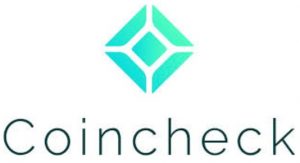
South Korean cryptocurrency exchange Korbit has announced that it will no longer support the trading of five cryptocurrencies: dash, monero, zcash, augur, and steem. This announcement came just days after hacked Japanese exchange Coincheck confirmed the delisting of privacy coins.
Also read: Yahoo! Japan Confirms Entrance Into the Crypto Space
Farewell to Five Cryptocurrencies
 Korbit, one of South Korea’s largest cryptocurrency exchanges, announced this week that it will be delisting the cryptocurrencies currently offered through its Other Digital Assets service.
Korbit, one of South Korea’s largest cryptocurrency exchanges, announced this week that it will be delisting the cryptocurrencies currently offered through its Other Digital Assets service.
“We will bid farewell to the Other Digital Assets service through a gradual termination of the buy and sell functions for the following coins,” Korbit wrote, adding that the affected coins are dash (DASH), monero (XMR), zcash (ZEC), augur (REP), and steem (STEEM).
This service gives Korbit users access to the above five cryptocurrencies in addition to those regularly supported by the exchange: BTC, XRP, ETH, BCH, ETC, LTC, and BTG.

For the five affected cryptocurrencies, Korbit emphasized that the buy functionality will be terminated “After 15:00 on 05/28/2018” and the sell functionality “After 15:00 on 06/21/2018.” However, the exchange hinted at the possibility of re-listing some of them at a later date, elaborating:
We strive to facilitate secure trades of more cryptocurrencies, but we have yet to determine the date for resumption of trades of the affected coins. We thus advise you to protect your interests by either selling or withdrawing the said cryptocurrencies.
Reason for Termination
Korbit’s announcement does not give the reason why the five cryptocurrencies are being dropped other than stating, “We are fully committed to building the most secure place for you to trade cryptocurrencies.”
 Furthermore, there have been no reports of the South Korean regulators pressuring crypto exchanges to drop privacy coins, unlike the Japanese regulator.
Furthermore, there have been no reports of the South Korean regulators pressuring crypto exchanges to drop privacy coins, unlike the Japanese regulator.
Since Coincheck was hacked in January, the Japanese Financial Services Agency (FSA) has strengthened oversight of crypto exchanges including setting new criteria for their registration. One of them concerns the types of cryptocurrencies listed. “Those granting a high level of anonymity and easily used for money laundering will as a general rule be banned,” Nikkei reported.
 Subsequently, Coincheck announced just days before Korbit that it is dropping DASH, XMR, ZEC, and REP after it received a business improvement order from the agency. STEEM is not listed on Coincheck.
Subsequently, Coincheck announced just days before Korbit that it is dropping DASH, XMR, ZEC, and REP after it received a business improvement order from the agency. STEEM is not listed on Coincheck.
The reason Korbit is dropping STEEM may be related to a notice the exchange posted on May 8, stating:
Due to external issues, STEEM withdrawals are being suspended indefinitely.
What do you think of Korbit dropping these cryptocurrencies? Let us know in the comments section below.
Images courtesy of Shutterstock, Nikkei, and Korbit.
Need to calculate your bitcoin holdings? Check our tools section.
The post South Korean Crypto Exchange Korbit Drops XMR, ZEC, DASH, REP, and STEEM appeared first on Bitcoin News.
from Bitcoin News https://ift.tt/2IJDTZX South Korean Crypto Exchange Korbit Drops XMR, ZEC, DASH, REP, and STEEM


 Following reports that Coincheck was going to delist monero (XMR), zcash (ZEC), and dash (DASH), the exchange has now confirmed that those cryptocurrencies will be delisted along with Augur’s reputation token (REP).
Following reports that Coincheck was going to delist monero (XMR), zcash (ZEC), and dash (DASH), the exchange has now confirmed that those cryptocurrencies will be delisted along with Augur’s reputation token (REP). Following the NEM hack in January, Coincheck received a business improvement order from the Japanese Financial Services Agency (FSA) on March 8. The exchange is a “deemed dealer,” meaning it has been allowed to operate while its application is being reviewed by the agency. The exchange has now been
Following the NEM hack in January, Coincheck received a business improvement order from the Japanese Financial Services Agency (FSA) on March 8. The exchange is a “deemed dealer,” meaning it has been allowed to operate while its application is being reviewed by the agency. The exchange has now been 
 It is virtually impossible to identify the recipients of funds denominated in these cryptocurrencies on their blockchains. That’s probably the main reason for Coincheck’s decision. The anonymity facilitates their possible use in money laundering, which is not the case with other cryptos, like bitcoin. The exchange is considering buying the coins at a fixed rate from customers who agree to sell. It will accept transfers from Coincheck accounts whose owners have been verified.
It is virtually impossible to identify the recipients of funds denominated in these cryptocurrencies on their blockchains. That’s probably the main reason for Coincheck’s decision. The anonymity facilitates their possible use in money laundering, which is not the case with other cryptos, like bitcoin. The exchange is considering buying the coins at a fixed rate from customers who agree to sell. It will accept transfers from Coincheck accounts whose owners have been verified.